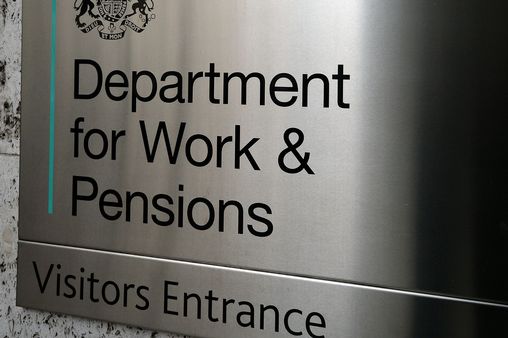By Peter Makossah
People in the UK with certain medical conditions could get extra cash of up to £172 a week from June 1st, 2023, the Department for Work and Pensions (DWP) has announced.
Approximately three million people in the UK are currently receiving Personal Independence Payment (PIP), which is granted to those who have long-term physical or mental health issues or disabilities.
To be eligible for PIP, individuals must be over 16 years old and experience challenges with everyday tasks or mobility.
The payment is not means-tested and is available to those who are employed or have savings, however, the amount of payment awarded is based on how the medical condition affects the individual.
Starting April 2023, amounts will increase by 10.1 per cent to reflect the inflation of state benefits.
The benefit has two levels – standard and enhanced – for both the daily and mobility elements.
The DWP says 35 per cent of people on PIP get the highest level of payment, as reported The Manchester Evening News.
The standard mobility level provides the minimum payment of £24.45 per week, which will increase to £26.90 from April.
On the other hand, the combined enhanced rates offer the highest payment of £156.90 per week, which will increase to £172.75 per week from April.
The amount DWP pay out to PIP claimants will increase from April.

PIP recipients receive payments into their accounts every four weeks, which translates to a maximum increase from £627.60 to £691 per month.
Based on 52 weeks in a year, that comes out to £8,158, which will increase to £8,931 after April 2023.
Additionally, the new Universal Credit “health element” announced in the Chancellor’s Budget will be automatically available to PIP recipients.
This top-up will replace the current Limited Capability for Work and Work-Related Activity (LCWRA) amount of Universal Credit, which currently pays £354.28 above the standard allowance (rising to £390.06 from April 2023).
These changes are expected to take effect by 2026 at the earliest.
Here is the list of top 50 medical conditions getting PIP
- Anxiety and depressive disorders (mixed)
- Learning disability
- Primary generalised Osteoarthritis
- Back pain
- Autism
- Inflammatory arthritis
- Fibromyalgia
- Schizophrenia
- Rheumatoid arthritis
- Cerebrovascular accident (stroke)
- Chronic obstructive pulmonary disease (COPD) chronic bronchitis/emphysema
- Multiple sclerosis
- Depressive disorder
- Bipolar affective disorder (Hypomania / Mania)
- Personality disorder
- Seizures
- ADHD / ADD
- Neurological disorders
- Back pain – Nonspecific (mechanical)
- Asperger syndrome
- Cerebral palsy
- Vision diseases
- Post traumatic stress disorder (PTSD)
- Osteoarthritis of Knee
- Asthma
- Psychotic disorders
- Down’s syndrome
- Regional/localised Musculoskeletal disease
- Generalised musculoskeletal disease
- Generalised seizures (with status epilepticus in last 12 months)
- Psoriatic arthritis
- Anxiety disorders
- Knee disorders
- Breast cancer
- Chronic fatigue syndrome (CFS)
- Osteoarthritis of other single joint
- Head injury – Cognitive and sensorimotor impairment
- Lumbar disc lesion
- Specific learning disorder
- Genetic disorders dysplasias and malformations
- Cardiovascular disease
- Parkinson’s disease
- Spine Injuries/Fracture/Dislocation
- Dementia
- Hip disorders
- Lower limb Injuries/Fracture/Dislocation
- Amputation of Lower limb(s)
- Chronic Pain syndromes
- Ankle and foot disorders
- Multiple Injuries/Fracture/Dislocation
How to claim PIP
To start a claim for PIP, dial the new claims line at 0800 917 2222 (open Monday to Friday, 8am to 5pm).
You’ll, however, need to provide several pieces of information, including your contact information (such as your phone number), date of birth, National Insurance number, bank account number and sort code.
You are also requested to provide details of your doctor or healthcare provider, as well as any addresses and dates for time spent in a care home or hospital, and any time spent abroad for more than four weeks.
Once you’ve contacted the claims line, a form will be sent to you within a month, which you’ll need to fill out and return. You may also be requested to attend an assessment.
Additional information regarding the PIP claim process can be found on the www.gov.UK website.




